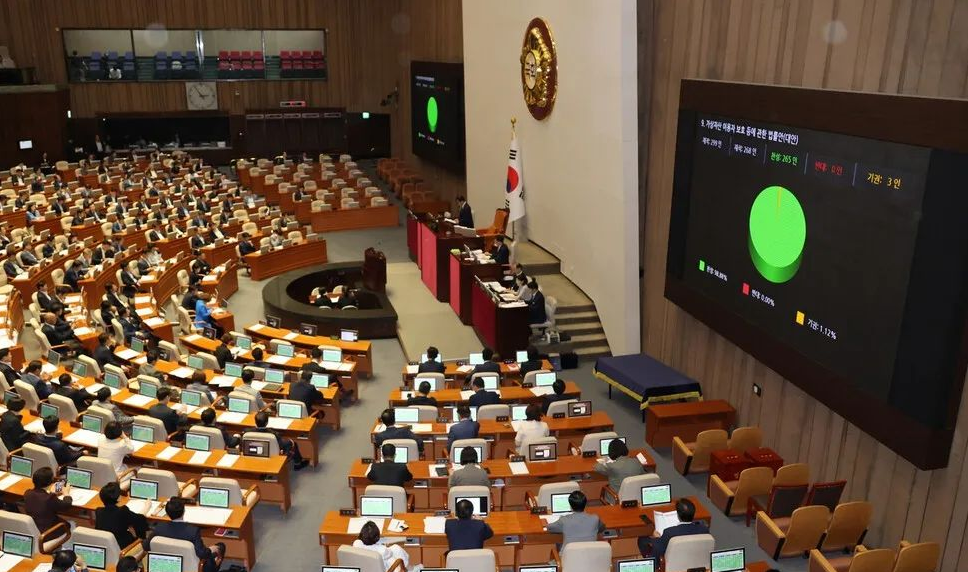"We are not the same as Bitcoin!" The PoS Alliance wants to "educate" the US Congress.
Understanding the blockchain industry is difficult for US congressmen. However, according to a recently established cryptocurrency lobby, some blockchain ratios are more likely to be misunderstood and the organization began to accept the challenge of Washington.
Recently, a group of cryptocurrency industry insiders and lawyers formed an organization called the Proof of Stake Alliance (POSA) to communicate to the regulators the high-energy PoW systems such as the PoS blockchain and Bitcoin. The key difference between.

If you are lucky, they want to convince Congress and regulators, such as the SEC (US Securities and Exchange Commission) and FinCEN (Financial Crime Enforcement Network), not all blockchains should be treated the same. Ethereum plans to switch from PoW systems to PoS systems in 2020, and the regulation of such networks may have a huge impact on the industry.
- The competition currency continues to be sucked, and the market value of Bitcoin accounts for nearly 70%.
- Who will protect your privacy? Encrypt "weapons" to learn about | Geekhub offline activities
- BTC early morning support, XRP or usher in the big cycle market
Ryón Nixon, founding member of POSA, said:
“Pledged assets face unique legal, regulatory and tax issues, and given the large number of agreements using this consensus mechanism, these issues must be resolved as early as possible.”
Nixon is one of the founding partners of Blockchain Law Firm Horizons Law, his lawyer colleague Evan Weiss, Polychain Capital Chief Operating Officer Matt Perona, and EON (the blockchain company dedicated to staking business) founder and president of Santiago Roel Santos also joined POSA. The organization also received strong support from more than a dozen founding members, including Harmony, Blockfolio, Interchain Foundation (the foundation of Cosmos) and TQtezos (Tezos incubator) supported by the currency.
Nixon said that POSA's goal is to achieve the "regulatory clarity" that is often discussed but rarely defined in the cryptocurrency industry while promoting the development and popularity of PoS networks.
Blockchain, not bitcoin
Unlike current Bitcoin and Ethereum, the PoS blockchain does not require a lot of computational power to mine or verify block transactions. Instead, its “mining” capability depends on the number of digital tokens each miner (called “verifier” on the PoS system) – that is, their “stake” in the network. These verifiers are essentially guessing which blocks will be added to the blockchain and rewarding them based on the proportion of tokens they hold when they are guessed correctly.
Nixon said that although regulators have begun to deal with the definition of cryptocurrencies such as bitcoin, they cannot be confused with PoS currencies, including future tokens based on Ethereum. He said:
“Currently, there is no appropriate legal or tax treatment framework for pledgeable assets.”
Angela Angelovska-Wilson, co-founder and attorney for DLx Law, and POSA consultant, said the tax issue is a big issue. In fact, this is the most pressing issue facing PoS blockchain companies. She said that “the taxation of incentives and the tax impact on service providers” is particularly important.
Nixon gives an example: When a user on a PoS network delegates a token to a verifier, the verifier extracts a small portion of the reward from the PoS network and returns the remainder to the user. “Does this involve several tax holidays?” he suggested. Is taxation based on income or capital gains? Nixon said: "The importance of solving these problems is obvious."
High risk operation
The POSA is particularly concerned with ensuring that Congress provides “clear and reasonable guidelines” for the processing of these assets. But the alliance said that other regulatory issues are equally urgent, such as the applicability of federal securities laws, and this issue has remained unresolved.
Nixon said it is unclear whether the agreement between the blockchain network asset holders and the verifier (that is, "authorization") can be considered an "investment contract", and if so, this is within the jurisdiction of the SEC. .
“After communicating with the SEC, we learned that they are investigating whether this authorization constitutes an investment contract. POSA will hire (International Law Firm) Paul Hastings to draft a staking white paper for engagement with the SEC.”
The POSA plans to provide white papers and other similar documents to each member.
In addition, POSA is working closely with Angelovska-Wilson's DLx Law to draft a no-objection letter to FinCEN, which may have a wide-ranging impact. Nixon said:
"This no-objection letter will require FinCEN to rule that the Staking service provider and the certifier need not be considered a money service company (MSB) under the Bank Secrecy Act. We believe that in view of our dialogue with the principal officials of FinCEN And FinCEN's May 2019 guidance (which states that the mine operator does not belong to the MSB) and we are likely to get what we want."
According to POSA, companies that do this technology—including those built on PoS networks such as Cosmos, Tezos, and Polkadot—will continue to travel overseas if they don't get a definitive answer from every relevant agency and Congress.
Although the fast-growing cryptocurrency industry needs to get some clear signals from Washington as a whole, POSA's only focus is on what it thinks is the direction of the industry, not its past.
Nixon said:
“Under the current securities and taxation system, the cryptocurrency community has faced a lot of problems. PoS networks and their participants may need to face more problems.”
We will continue to update Blocking; if you have any questions or suggestions, please contact us!
Was this article helpful?
93 out of 132 found this helpful
Related articles
- Ant blockchain: If the wind is not as good as the wind, the blockchain economy will usher in the next decade.
- Market Analysis: BTC will continue to maintain the attitude of the attack that has not stopped
- Deng Jianpeng: Libra's potential risks and China's response
- 36 Chinese team public chain fundamentals survey: this year is the coldest year
- Popular science comics to the daily life of a miner
- Bitcoin is high in the sideways, mainstream currencies are falling, how will the market go next?
- Investment Research Weekly: RMB 7 breaks, Litecoin halved, Wal-Mart issued coins





